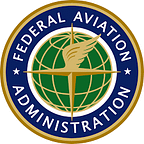Engineers Week — Alex Rodriguez
Alex Rodriguez’s engineering story starts with developing aviation equipment, and has scaled to diplomatic levels.
Engineers Week is about celebrating engineers and engineering, as well as encouraging young people to take an interest in engineering. What initially interested you in the field? What was your first engineering experience?
I was always interested in how things worked, and as a child, I liked to take things apart to learn more about them. Unfortunately, I did not always succeed in putting them back together the right way. Engineering always seemed like a good fit, in that it allowed me to learn how to apply my technical knowledge and curiosity across multiple disciplines.
My first experience was working on an industry effort for an Automatic Dependent Surveillance-Broadcast (ADS-B) Version 2 transponder. This experience allowed me to immediately deep dive into the role that surveillance systems play in the National Airspace System.
How and when did you come to the FAA? What attracted you to the job?
I joined the FAA in October 2011. After having worked in industry on surveillance systems for five years, I wanted to expand my knowledge of how certification of avionics systems at both the equipment and aircraft level affected national airspace (NAS) operations. I knew the FAA was in the mist of developing and implementing policy for ADS-B and wanted to bring my industry knowledge to help develop the guidance and policy that would ensure NAS safety, but not be a barrier to certification.
What is your current role at the FAA and what kind of work do you do as an engineer?
I currently work as a technical advisor for surveillance systems in the FAA’s Air Traffic Organization, helping others in the FAA understand the impacts of the decisions being made on NAS operations. Additionally, I am part of a team made up of members of the FAA, ACSS, and American Airlines to successfully conduct ADS-B In trials taking place in Dallas and Albuquerque.
I also serve as an FAA representative at a number of International Civil Aviation Organization (ICAO) surveillance meetings, where I share lessons learned in the surveillance field with Civil Aviation Authority representatives from around the globe. My goal is to balance U.S. interests while ensuring the proposed changes to the ICAO global standards maintain a high level of safety and harmonization.
What is your proudest achievement professionally?
My proudest achievement was when I worked as an FAA Foreign Affairs Representative for the Caribbean, and I was tasked with being the main point of contact for the Hurricane Dorian response to The Bahamas. I was asked to lead a small team down to Nassau to assist the Minister of Transportation with developing an airspace recovery plan. This airspace recovery plan would include airspace restrictions that would allow Search and Rescue personnel to conduct their operations safely, and ensure appropriate humanitarian flights were able to access the affected areas. This allowed me to leverage my knowledge of airspace operations to assist a partner nation during a disastrous time for their country.
What advice would you give to an engineering student today?
My advice to an engineering student is to not allow an excess of specialized classes to prevent you from finishing a degree that can launch you into a very interesting and constantly changing career field. I would also advise engineering students to utilize internships and co-ops to get as much experience as possible as that could help them not only when they enter the work force, but as they pursue job opportunities, as well.
Is there anything else you would like to say about being an engineer or your experience as an engineer at the FAA?
Many believe that an engineer is solely mathematical based, but the ability to communicate is critical in any engineering field you pursue. I am thankful for the domestic and international opportunities the FAA has afforded me as an engineer. These opportunities have allowed me to interact and learn from people of varying knowledge bases and backgrounds. Understanding how my work affects safe travel gives me the motivation to continue to find ways to further improve the safest airspace system in the world.
